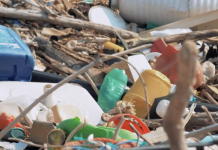There are several crises in the printing and packaging industry and at times we (or our governments and its institutions) apply band-aids or other medicines for temporary relief rather than addressing the causes and looking for real cures. In some cases, the cures take longer than the life-span of a government and what’s needed is longer term and politically neutral planning.
The crisis stemming from the Plastic Waste Management order of 2016 seems to have passed because the new order issued on 27 March 2018 says that almost all types of plastic packaging can continue. Thus, it’s back to business as usual and the real environment issues in relation to plastics are again in danger of being ignored until the next draconian order.
As S Chidambar points out in our pages, if one reads the PWM orders carefully, there are still many obligations that brand owners, packaging producers and cities and towns
have to address that require serious and concerted action and will have to paid for – right from households, to industry and government. Waste collectors need to be trained, given
the right tools and paid, and capital expenditure is needed for composting and recycling facilities. Turning plastic into energy and landfills cannot be a realistic answer.
The other major crisis is that of poor economic and industrial growth which, not with standing upward government statistical announcements, is not borne out by the facts on
the ground – at least as far the uptake in consumer good packaging and more importantly in the profit margins in packaging. At the same time our customers – the globalconsumer product manufacturers – are making big announcements even on social media about being water and carbon positive by 2020 but in a general and global way, that seems to average their global activity.
However, these same brand owners seem reluctant about the specifics of their products and packaging in India where they continue to encourage participation in reverse auctions
to keep on squeezing margins while at the same time demanding the use of sustainable inputs such as FSC-certified packaging boards. They do not seem to understand that to establish a chain of custody for sustainable inputs and to monitor and certify these also takes effort and costs money.
There are many other crises, but here I will touch only one more – the anti-dumping duties sought to be applied to both the import of coated paper and board and to offset printing
plates. Apart from the structural issues, one of the biggest problems is of the quality of domestic products, where some of our bigger manufacturers seem to be unable to provide
quality products in comparison to the imported papers, offset plates and even aluminum foils that are now required to produce competitive and high-quality printing and packaging for both domestic consumption and exports.
Our printing and packaging industries may be fragmented but collectively they are not small, merely focussed on themselves and the short term. We need greater maturity in
working with our industry colleagues and our government. We cannot continue to do business as usual.










